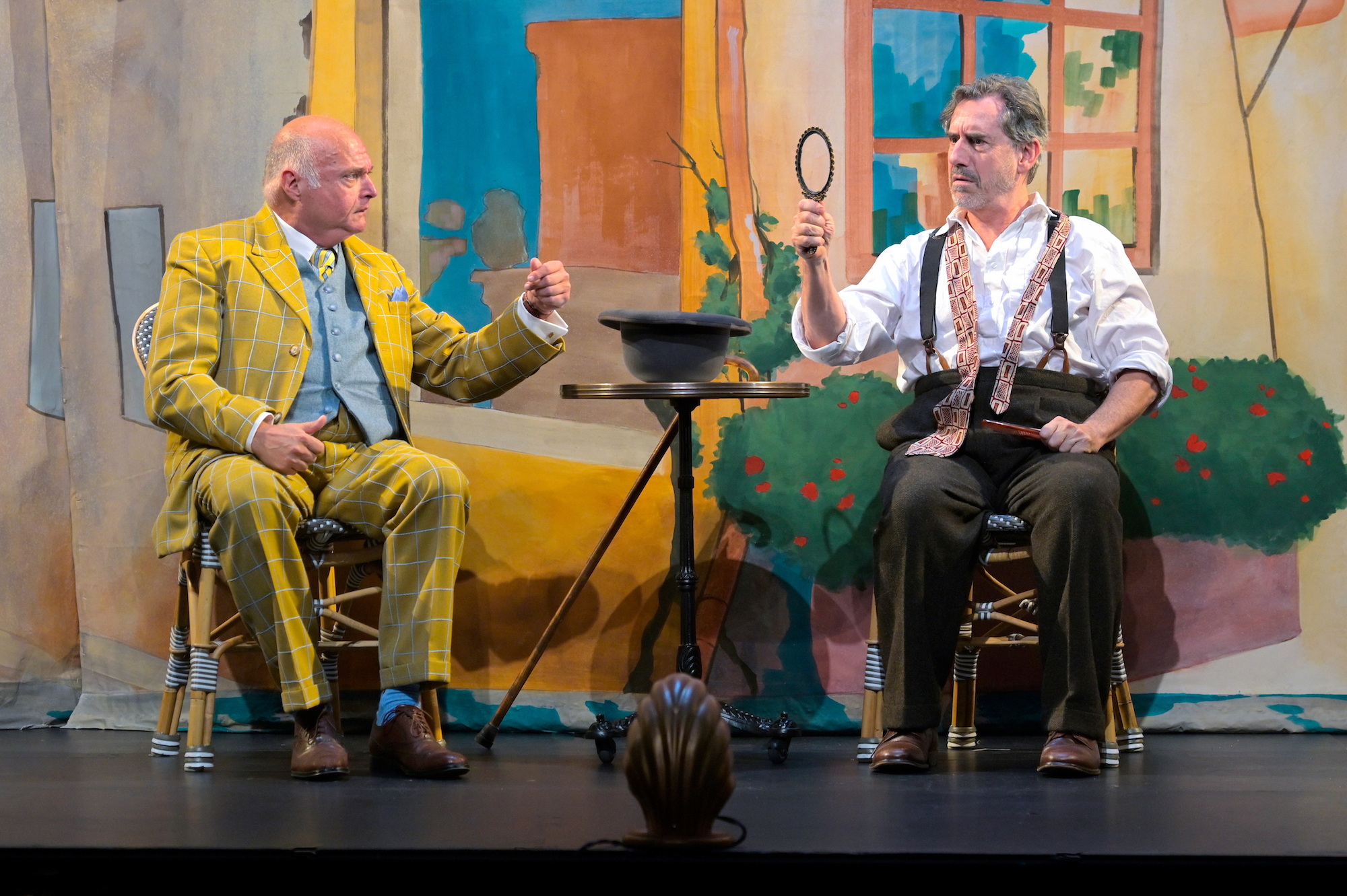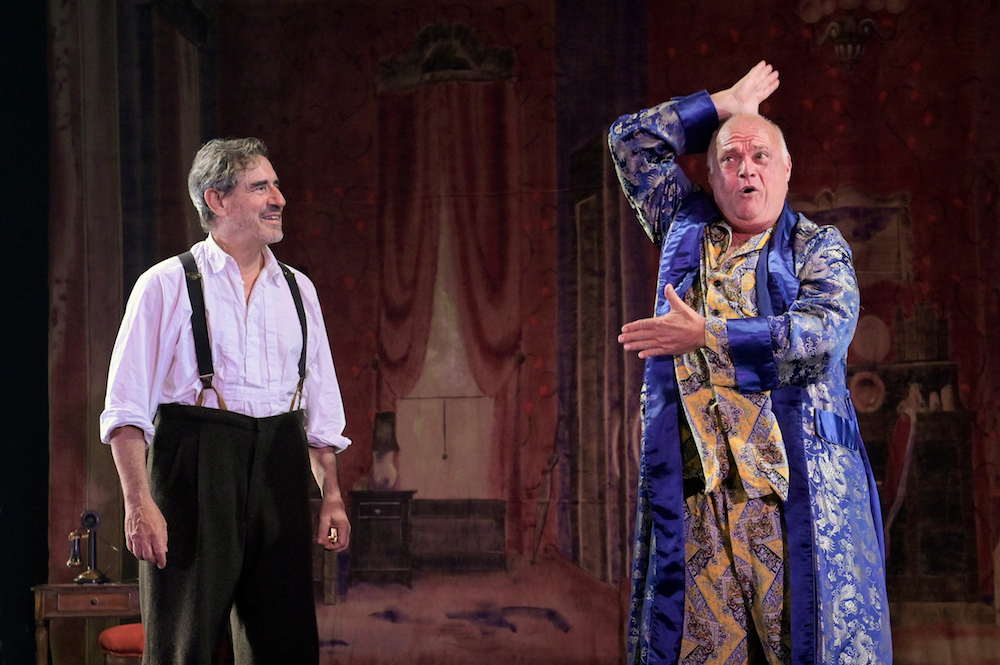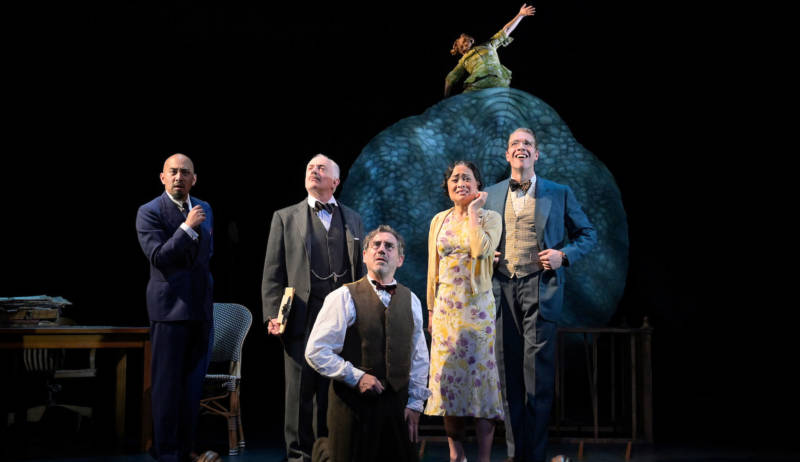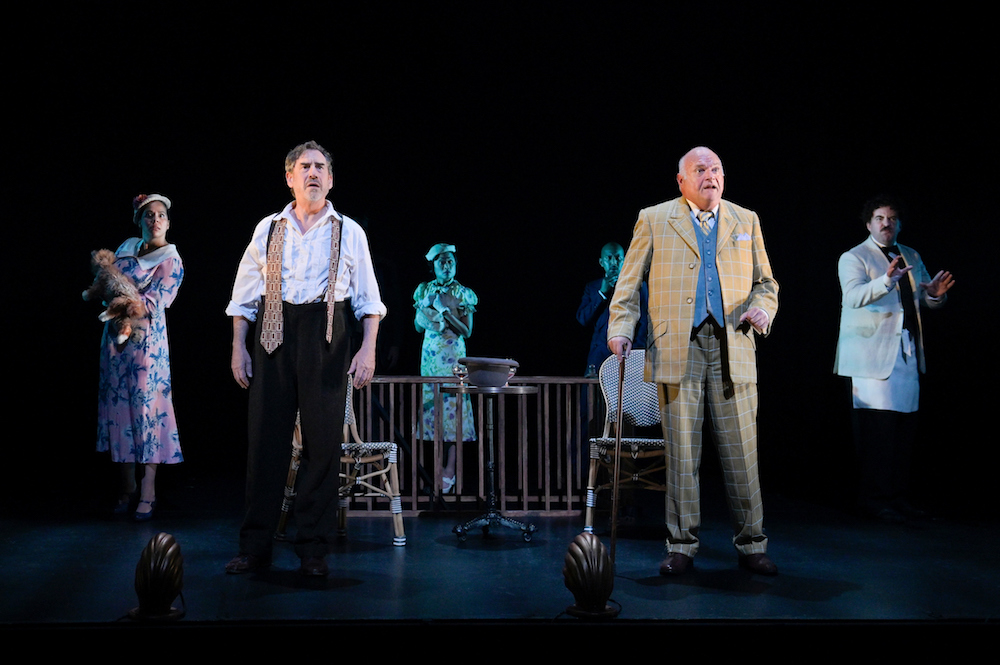There’s a curious symbiosis between Edward Albee’s Seascape, which opened at A.C.T. in January, and their current production of Eugene Ionesco’s Rhinoceros, that extends beyond their use of thick-skinned quadrupeds to illuminate the human condition. Both take the strictly mundane—a vacation at the beach, a day in the office—and turn them into explorations of existence through an absurdist lens. But where Seascape’s director Pam MacKinnon (also A.C.T.’s artistic director) leaned into the realism of a predictable beach holiday before juxtaposing it with the audacity of having giant lizards as two major characters, Rhinoceros’ director, Frank Galati, takes a different approach.
In Galati’s Rhinoceros, the absurd is not merely hinted at, but is integral to the core of the production from the beginning. A garishly painted backdrop of a quaint, French side street—positioned so close to a single cafe table that the actors seem in constant danger of poking through it—sets the tone. As does the heightened, jokey affect of friends Berenger (David Breitbarth) and Gene (Matt DeCaro), who are meeting for coffee and superfluous chit-chat. As they bicker over Berenger’s appearance, Gene hands him a glassless mirror frame to examine himself in, and their waiter pops through the wall to take their order. There’s no gradual descent into surrealism here. Those cards are lying right out on the flimsy table, and flimsier walls for all to see.

And yet, when the rhinos make their entrance, first as offstage rumblings (sound by Joseph Cerqua) and later as fully-realized giants (courtesy of scenic designer Robert Perdziola), their effect still shocks the imagination, just as it shocks the villagers onstage. There are few hypothetical scenarios more unsettling than that of an agitated, 6000-pound creature stampeding through a quiet neighborhood, and the panic it stirs among the actors feels genuine.
Still, the premise feels in many ways like an elaborate put-on—until the second act, when the human implications of this strange metamorphosis really come to light. As Berenger visits, the normally impeccable Gene begins a startling transformation, conveying the weirdness of his situation with uncontrollable flailing, disco dancing, guttural growling, and with such commitment that when Breitbarch strips off his shirt you actually expect to see tough, rhino hide.
Throughout, as a concerned Berenger tries to soothe and calm his friend, we get a crucial insight into the mentality of a prospective pachyderm: there is pleasure in the transformation. Gene feels powerful, energetic, even sexy. He declares humanism “dead” and runs to the bathroom to check out his burgeoning horn. He embraces his new state of being—mentally and physically—even as vestiges of his old self struggle against it.

It’s this insight that guides the rest of the play to a natural conclusion, albeit in an unnatural world. What’s attractive about belonging to the herd isn’t boring conformity. It’s that there’s true strength in numbers, and even before the rhinos are the actual majority, they command an outsized amount of attention. Larger than life, seemingly indestructible, and made up of a community of friends, neighbors and co-workers, the way of the rhinoceros becomes plausible, even desirable, and soon even Berenger longs to join.




